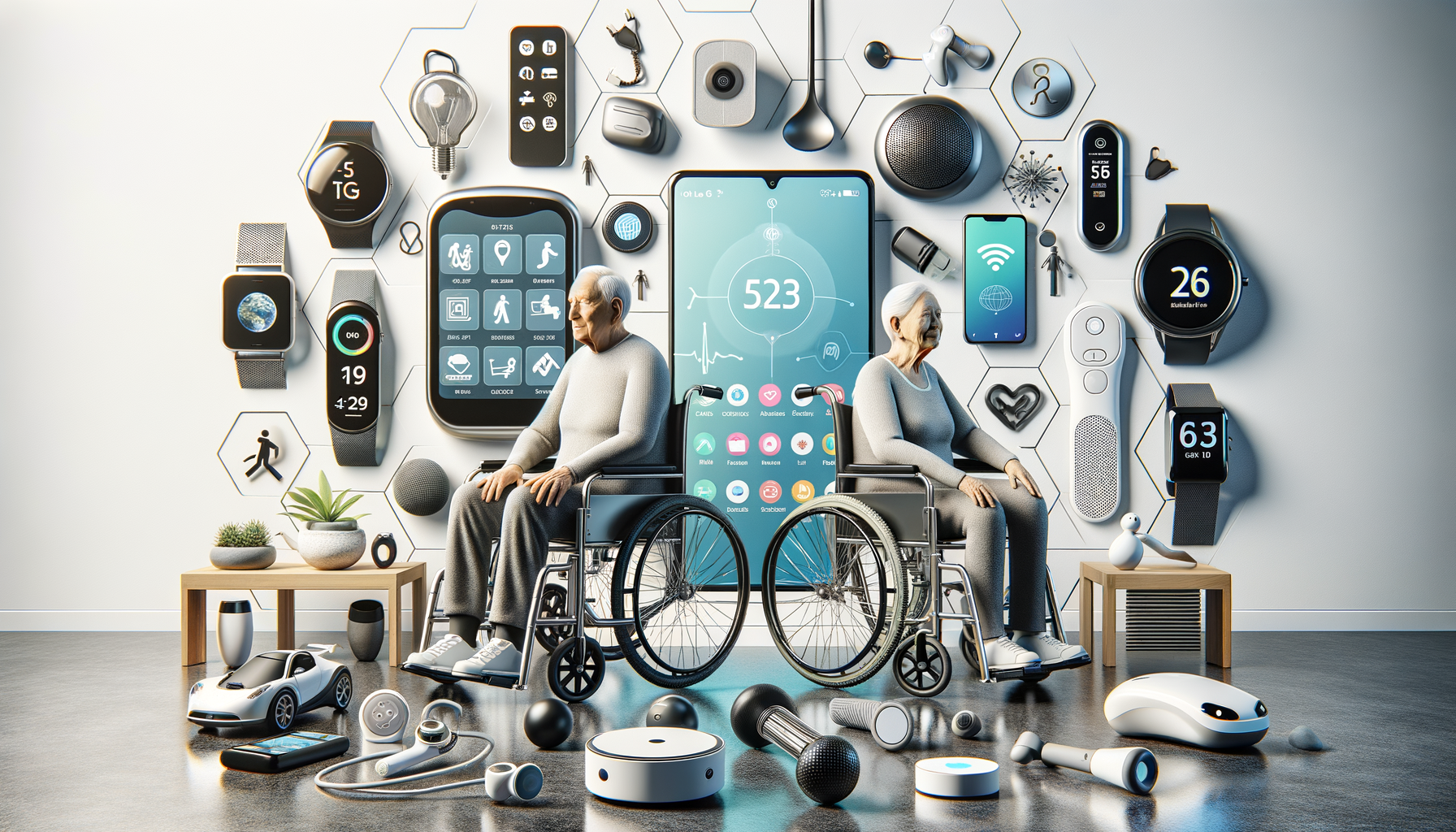Introduction to Smart Mobility Tech for Seniors
As the world rapidly advances in technology, one area that is seeing significant transformation is mobility solutions for seniors. Smart mobility tech is not just about convenience; it’s about empowering older adults to maintain their independence and enhancing their quality of life. From smart walkers to advanced navigation systems, these technologies are designed with the specific needs of seniors in mind, ensuring safety, ease of use, and accessibility.
In this article, we will explore various smart mobility technologies that are making a difference in the lives of seniors, helping them navigate their daily routines with more ease and confidence. We’ll look at the benefits these innovations bring, the challenges they address, and how they are shaping the future of senior living.
Smart Walkers and Wheelchairs
One of the most significant advancements in smart mobility tech for seniors is the development of smart walkers and wheelchairs. These devices are equipped with sensors and connectivity features that offer enhanced safety and ease of use. For instance, smart walkers can detect obstacles and provide feedback to the user, helping prevent falls and accidents. Some models even come with GPS tracking, allowing family members to monitor the location of their loved ones.
Smart wheelchairs, on the other hand, offer features such as automated navigation and voice-controlled movement. These capabilities can be particularly beneficial for seniors with mobility impairments, providing them with a sense of autonomy and reducing the reliance on caregivers. Additionally, the integration of health monitoring systems in these devices allows for real-time tracking of vital signs, ensuring that any health issues can be promptly addressed.
Overall, smart walkers and wheelchairs are not just mobility aids; they are comprehensive solutions that enhance the safety and independence of seniors, allowing them to lead more active and fulfilling lives.
Wearable Technology for Enhanced Mobility
Wearable technology has become an integral part of smart mobility solutions for seniors. Devices such as smartwatches and fitness trackers are now equipped with features specifically designed for the elderly. These wearables can monitor physical activity, track location, and even detect falls, sending alerts to emergency contacts if necessary.
One of the most innovative features of these wearables is their ability to integrate with other smart devices. For example, a smartwatch can connect to a smart home system, allowing seniors to control their environment with ease. This connectivity offers a seamless experience, making daily tasks more manageable and less daunting for older adults.
Moreover, wearable technology promotes a proactive approach to health management. By providing insights into physical activity levels and health metrics, seniors can make informed decisions about their lifestyle and well-being. This empowerment not only enhances their mobility but also contributes to their overall health and longevity.
Smart Home Integration for Seamless Mobility
Smart home technology plays a crucial role in supporting the mobility of seniors. By integrating smart devices such as automated lighting, voice-activated assistants, and smart thermostats, seniors can navigate their homes with greater ease and safety. These technologies reduce the need for physical exertion and minimize the risk of accidents, such as tripping over obstacles in dimly lit areas.
Voice-activated assistants, for example, can be used to control various aspects of the home environment, from adjusting the temperature to turning on the television. This level of control is particularly beneficial for seniors with limited mobility, as it allows them to maintain their independence and comfort without the need for assistance.
Furthermore, smart home systems can be tailored to the specific needs of the individual, ensuring that the environment is both safe and supportive. By creating a home that adapts to the needs of its occupants, smart mobility tech enhances the quality of life for seniors, allowing them to age in place with dignity and confidence.
The Future of Smart Mobility Tech for Seniors
The future of smart mobility tech for seniors is promising, with ongoing advancements in artificial intelligence and machine learning paving the way for even more innovative solutions. As these technologies continue to evolve, we can expect to see more personalized and intuitive devices that cater to the unique needs of each individual.
One area of development is the integration of AI-driven predictive analytics, which can anticipate the needs of seniors and provide timely interventions. For example, a smart mobility device could predict when a senior is likely to experience a fall and take preventive measures, such as alerting caregivers or adjusting the environment to reduce risks.
Additionally, the expansion of the Internet of Things (IoT) will lead to more interconnected devices, creating a cohesive ecosystem that supports the mobility and well-being of seniors. This connectivity will enable seamless communication between devices, providing a holistic approach to senior care that encompasses health, safety, and independence.
In conclusion, smart mobility tech is revolutionizing the way seniors live, offering them the tools they need to navigate their daily lives with ease and confidence. As technology continues to advance, the possibilities for enhancing senior mobility and independence are limitless, promising a future where aging gracefully is not just a possibility, but a reality.



Leave a Reply